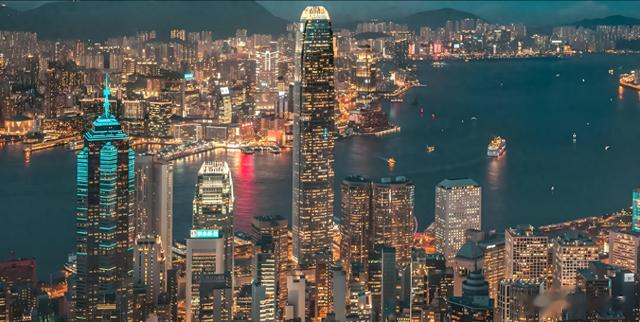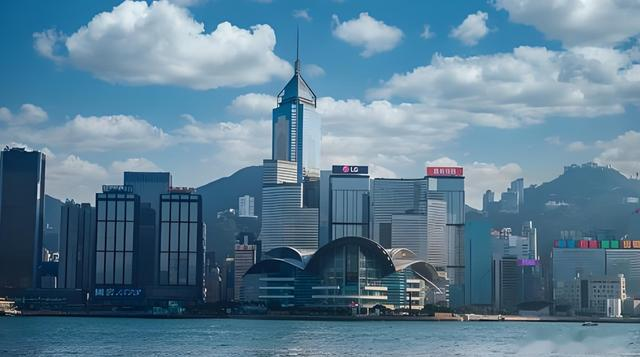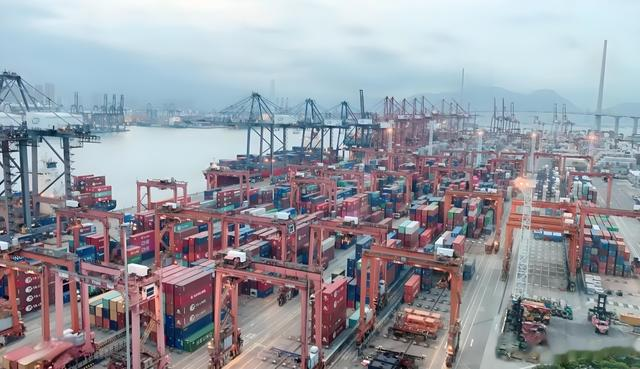1840年,鸦片战争爆发,清政府的战败导致了《南京条约》的签订,香港岛被割让给英国。这一事件不仅改变了中国的历史进程,也为香港的自由港地位埋下了伏笔。1841年6月7日,英国政府代表查理·义律正式宣布香港成为自由贸易港。这一决定,基于香港得天独厚的地理位置和英国对远东贸易的雄心壮志,使得香港从一个默默无闻的小渔村迅速崛起为国际贸易的重要枢纽。

在首任港督璞鼎查就职之前,香港处于半军事化的殖民统治之下,由英国远东舰队司令伯麦与英国驻华全权代表兼商务总监义律共同负责。然而,实际的权力中心却集中在义律手中。2月2日,义律宣布,在英国政府未给出进一步指示前,香港岛的统治权暂由商务监督署执行。这一决定,使得义律成为了实际主持香港事务的关键人物。
义律深受亚当·斯密创立的自由主义经济理论的影响,他敏锐地意识到,尽管香港当时只是一个贫瘠落后、海盗猖獗、瘟疫流行且自然灾害频发的偏远小岛,但其地理位置的优越性却不容忽视。作为英国向中国倾销鸦片的中转站,香港有着巨大的潜在商业价值。

为了将香港打造成一个繁荣的商埠,义律面临着诸多挑战。首先,英国贵族们对香港并不感兴趣,认为这里既贫瘠又遥远。其次,冒险家们也更倾向于前往江浙沿海等充满发财机会的地区。此外,香港当时的社会环境也极为恶劣,海盗横行、瘟疫肆虐,自然灾害频发,这些都给香港的发展带来了极大的阻碍。义律他获得了英资洋行如林赛洋行、渣甸洋行(现怡和财团的前身)等的支持,这些洋行看到了香港作为自由贸易港的潜力,并愿意为此投资。在义律的推动下,香港开始逐步走向自由贸易的道路。
义律采取了一系列措施来改善香港的投资环境。他加强了港口的设施建设,提高了港口的吞吐能力;同时,他还积极推动自由贸易政策,这些政策包括低税制、自由市场准入、简便的通关程序等,为香港的国际贸易创造了极为有利的条件。此外,英国还大力投资于香港的基础设施建设,如港口、道路、电信等降低了关税壁垒,吸引了更多的国际商人和投资者前来香港。此外,义律还注重维护社会治安,打击海盗和犯罪行为,为香港的经济发展提供了有力的保障。
随着时间的推移,香港的自由贸易政策逐渐显现出其巨大的商业价值。越来越多的国际商人和投资者被吸引到这里,他们带来了资金、技术和先进的管理理念,推动了香港经济的蓬勃发展。香港的港口、金融、贸易等行业迅速崛起,成为了全球瞩目的经济中心。
香港的地理位置极其优越,它位于亚洲的中心地带,是连接东西方贸易的桥梁。维多利亚港,这一举世闻名的深水海港,位于香港岛和九龙半岛之间,为香港的航运业提供了得天独厚的条件。加之香港四周被海洋环绕,天然屏障使得其成为了一个相对安全的贸易港口。
随着时间的推移,香港的自由港地位逐渐得到了国际社会的广泛认可。二战后,随着全球经济的复苏和亚洲地区的崛起,香港的经济和社会迅速发展。它不仅跻身“亚洲四小龙”行列,更成为全球最富裕、经济最发达和生活水准最高的地区之一。香港的港口效率、金融服务、法律制度以及营商环境等方面均达到了国际一流水平,吸引了来自世界各地的企业和投资者。

香港之所以能够连续多年被评为全球最自由的经济体,其完善的制度和政策功不可没。香港的简单税制、低税率以及缺乏贸易壁垒的优势,使得其成为了全球公认的国际自由港。同时,香港还拥有健全的金融监管制度和透明的法律体系,为金融市场的稳定和透明提供了有力保障。此外,香港政府还积极推动经济多元化发展,加强科技创新和人才培养,为香港的长期发展奠定了坚实基础。
The beginning of Hong Kong becoming a free trade port
In 1840, the Opium War broke out, and the Qing government's defeat led to the signing of the Treaty of Nanjing, ceding Hong Kong Island to Britain. This event not only changed the course of Chinese history but also laid the groundwork for Hong Kong's status as a free port. On June 7, 1841, Charles Elliot, on behalf of the British government, officially announce Hong Kong a free trade port. This decision, based on Hong Kong's unique geographical location and Britain's ambitions for Far Eastern trade, transformed Hong Kong from an obscure little fishing village into a vital hub of international trade.
Before the inaugural Governor Pottinger took office, Hong Kong was under semi-military colonial rule, jointly overseen by Admiral Sir Thomas Bland and Charles Elliot, who was both the British Plenipotentiary in China and the Superintendent of Trade. However, the actual center of power was concentrated in Elliot's hands. On February 2nd, Elliot announced that until further instructions were received from the British government, the administrative authority over Hong Kong Island would be temporarily exercised by the Superintendency of Trade. This decision made Elliot the key figure in actually managing Hong Kong's affairs.
Elliot was deeply influenced by the liberal economic theory founded by Adam Smith. He keenly recognized that although Hong Kong was then a remote island plagued by poverty, piracy, epidemics, and natural disasters, its geographical advantage could not be ignored. As a transit point for Britain to smuggle opium into China, Hong Kong had enormous potential commercial value.
To transform Hong Kong into a prosperous commercial port, Elliot faced numerous challenges. Firstly, British aristocrats were uninterested in Hong Kong, viewing it as both barren and distant. Secondly, adventurers preferred to venture to regions like the coastal areas of Jiangsu and Zhejiang, which offered more lucrative opportunities. Furthermore, Hong Kong's social environment at the time was extremely harsh, with rampant piracy, epidemics, and frequent natural disasters, all posing significant obstacles to its development. Elliot secured the support of British trading companies such as Lindsay & Co. and Jardine, Matheson & Co. (the predecessor of the current Jardine Matheson Group), which recognized Hong Kong's potential as a free trade port and were willing to invest in it. Under Elliot's promotion, Hong Kong gradually embarked on the path of free trade.
Elliot implemented a series of measures to improve Hong Kong's investment environment. He strengthened port facilities, enhancing the port's handling capacity; at the same time, he actively promoted free trade policies, including low tax rates, free market access, and simplified customs procedures, creating extremely favorable conditions for Hong Kong's international trade. Additionally, Britain invested heavily in Hong Kong's infrastructure, such as ports, roads, and telecommunications, lowering tariff barriers and attracting more international merchants and investors to Hong Kong. Furthermore, Elliot prioritized maintaining social order, cracking down on piracy and criminal activities, providing a strong guarantee for Hong Kong's economic development.
Over time, Hong Kong's free trade policies gradually demonstrated their enormous commercial value. More and more international merchants and investors were attracted to the region, bringing capital, technology, and advanced management concepts that drove the vigorous development of Hong Kong's economy. Hong Kong's port, finance, and trade industries rapidly emerged, making it a globally renowned economic center.
Hong Kong's geographical location is extremely advantageous, situated in the heart of Asia and serving as a bridge connecting East-West trade. Victoria Harbour, a world-famous deep-water port located between Hong Kong Island and the Kowloon Peninsula, provides Hong Kong's shipping industry with unparalleled conditions. Moreover, Hong Kong is surrounded by the sea, with natural barriers making it a relatively safe trade port.
As time passed, Hong Kong's status as a free port gradually gained widespread recognition from the international community. After World War II, with the global economic recovery and the rise of the Asian region, Hong Kong's economy and society developed rapidly. It not only joined the ranks of the "Four Asian Tigers" but also became one of the wealthiest, most economically developed, and highest-standard-of-living regions globally. Hong Kong's port efficiency, financial services, legal system, and business environment have all reached world-class levels, attracting businesses and investors from around the world.
Hong Kong's ability to be ranked as the world's freest economy for consecutive years is largely attributed to its well-established systems and policies. Hong Kong's simple tax system, low tax rates, and lack of trade barriers have made it a globally recognized international free port. At the same time, Hong Kong has a sound financial regulatory system and a transparent legal system, providing a strong guarantee for the stability and transparency of the financial market. In addition, the Hong Kong government actively promotes economic diversification, strengthens technological innovation and talent cultivation, laying a solid foundation for Hong Kong's long-term development.
